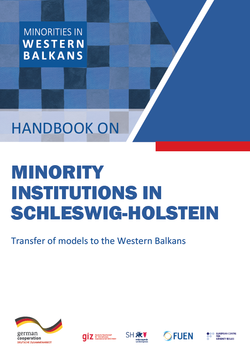ECMI Publications Database

The implementation and protection of minority rights in the Western Balkans is still a challenge. Despite the significant improvements over the past decades, members of various minority communities throughout the region, especially Roma, remain among the most vulnerable citizens of their countries; exposed to poverty, social exclusion, and various forms of discrimination. Local actors such as social centers and municipalities do not have sufficient capacities in order to provide qualitatively and quantitatively sufficient services to the vulnerable groups. Often however,a significant impediment to their access to public services, education and the labor market, is not only the limited support but also the lack of information and trust in institutions.
The situation is very different in Schleswig-Holstein. Schleswig-Holstein is the most northern federal state in Germany. The state borders Denmark and has a long history with the Danish minority which has lived for decades in German territory, as well as the German minority in Denmark and the Frisian ethnic group. In addition, since 2012 the constitution of Schleswig-Holstein recognizes Sinti and Roma as minority. Today, all four minorities live peacefully together in the German-Danish border region with the local population. Schleswig-Holstein is notorious for its minority policy model in Germany and beyond.
This was the background of the project “Minorities in Western Balkans” on behalf of the German Federal Ministry for Economic Cooperation and Development (BMZ) and co-financed by the state chancellery Schleswig- Holstein in 2016 and 2017. The project is jointly implemented by GIZ’s Regional Office North (Hamburg) and GIZ Regional Project on Social Rights for Vulnerable Groups (SoRi) and in cooperation with the Federal Union of European Nationalities (FUEN), and the European Centre for Minority Issues (ECMI).

